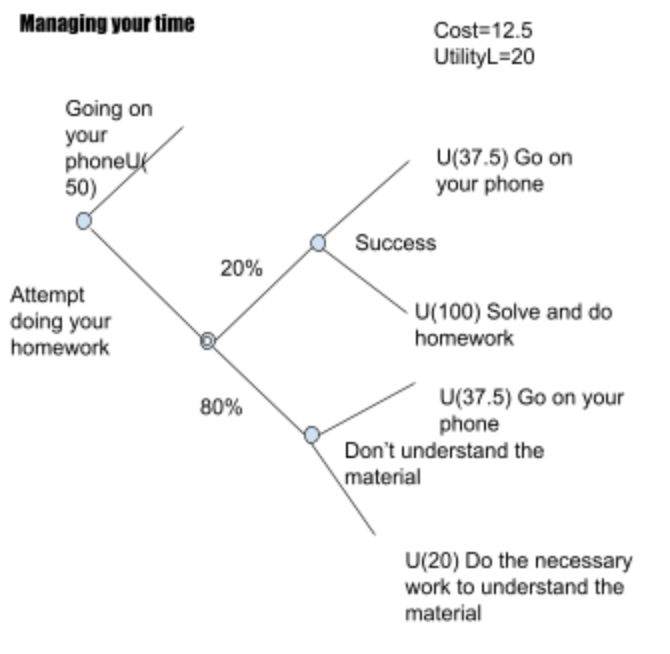We all struggle with time management, from putting off going to the gym or doing one’s homework to getting one more episode of your favorite Netflix show in or folding that last load of laundry. When looking at why we procrastinate, it can be found that statistically that 20 percent of adults are chronic procrastinators. This dilemma can be seen in the understanding that if we find a task difficult, unpleasant, or adverse, we tend to avoid them to get the most utility out of a situation in economic terms. This idea is usually becoming relevant since one cannot manage certain negative and innate behaviors around an activity or task. This often can create overwhelm and stress, which leads to putting off important decisions that can, overtime lead to poor mental and physical health. These factors can contribute to higher levels of stress and more significant numbers of acute health problems found in people.
With all of these factors considered, it can be hard to muster the motivation needed to accomplish and complete the tasks throughout the day. However, this begs the question should we even do our responsibilities? Is there an alternative that would provide us with more utility? And if so, what is stopping us from choosing that option over our current obligations? By looking at one’s own choices and assigning them value, one can determine how much something means to them or, more importantly, do you need to do that final task.
This school of thought can be addressed by an idea known as search theory. Search theory identifies an individual’s optimal strategy when choosing from a series of potential opportunities or between two distinct possibilities in a random quality. This is usually based on the assumption that the longer one waits to decide or changes or delaying choice is costly. Search models can illustrate how best to balance the delay cost or choose an initial option that will provide the most benefit again. These problems can usually be shown mathematically and solved to find optimal choices.

One example illustrated above is the common problem of doing your homework as an avid procrastinator. By going on your phone, you naturally get a utility of 50 but knowing completing your task would make you twice as happy. However, as a natural procrastinator, you only paid attention a little in class so you only have a 20% chance of understanding the material. With these expectations, you know that if you end up not understanding the material or not doing the homework, you will end up going on your phone with a lowered utility because you wasted time. So what do we do?
Search if:P(UH-ū)≥C(1-P).2(100-50)≥12.5(1-.2)10≥10
P(UH-ū)≥C(1-P).2(x-50)≥12.5(1-.2).2(x-50)≥10X≥100
What this math shows is that there is no correct answer. In the scenario, you would be indifferent, which makes this ring so true to procrastination. One way this could be changed is one’s personal value systems. If you were to value completing your homework more than you would have an optimal decision in this scenario. As consumers, in a world full of decisions, we are always trying to figure out the best decision in a specific situation. Although the answer might not always be black and white, we should always simplify the complex.
